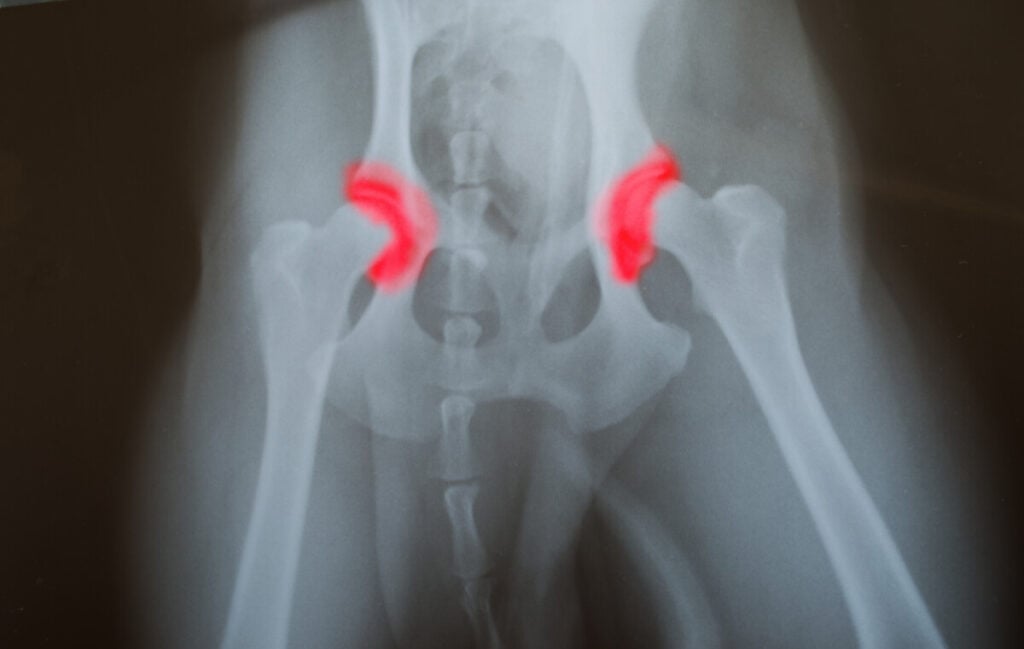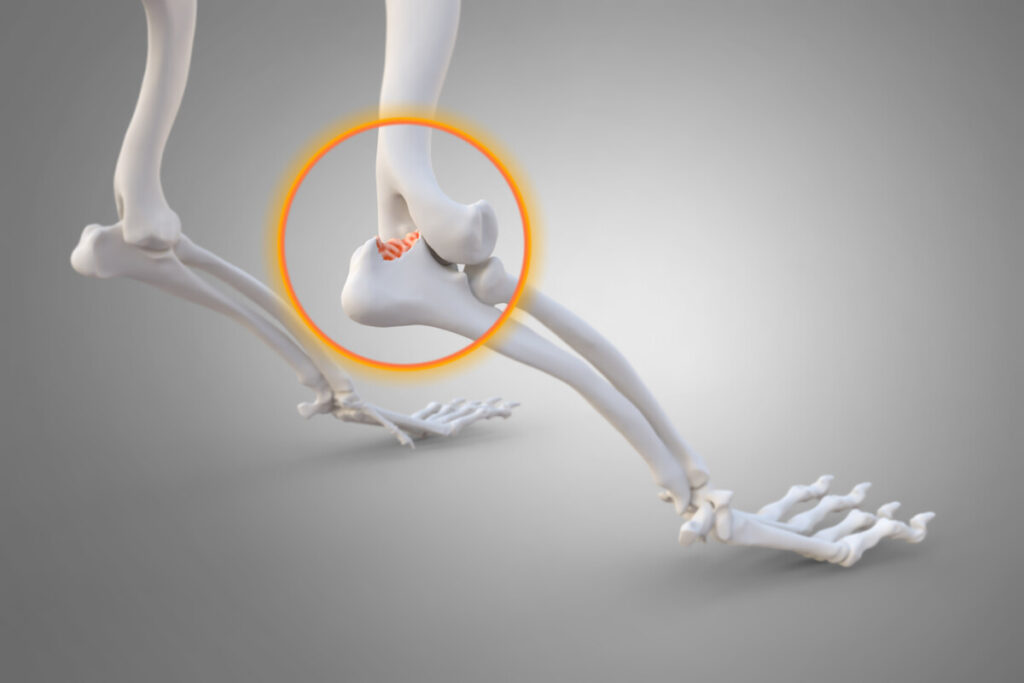What Health Problems do Mini Goldendoodles Have?
Mini Goldendoodles are typically classified as happy and healthy dogs, however, this breed is not immune to certain health issues. This mixed breed inherits diseases and health problems from its golden retriever or miniature poodle parent. Thankfully, most of the conditions that affect mini Goldendoodles can be cured or can at least be minimized when diagnosed and treated early.
Mini Goldendoodles are not prone too many serious health issues, but there are a few that should be mentioned. A large amount of these diseases and conditions are genetic result of faulty breeding. To learn more about the health issues with mini Goldendoodles, continue reading below.
1. Hypothyroidism
Hypothyroidism occurs in mini Goldendoodles because of the golden retriever parent. Golden retrievers are amongst the most likely dog breeds to develop this disease, which unfortunately makes mini Goldendoodles susceptible.
With hypothyroidism, the production of thyroid hormones is decreased, which can cause the mini doodle to gain weight, lose its fur, and have limited activity levels. Unfortunately, hypothyroidism cannot be cured. Once the mini Goldendoodle develops the disorder, the dog must be treated for the rest of its life. However, the life expectancy of diagnosed mini goldendoodles will remain the same as long as they are treated.
Treatment for a mini Goldendoodle’s hypothyroidism is called thyroid hormone replacement therapy. This treatment requires your dog to take medication daily.
2. Hip Dysplasia

Hip dysplasia is very common for mini Goldendoodles. It is more common for larger Goldendoodles; however, it is not unusual for the mini breed to develop it as well.
Hip dysplasia is a skeletal condition, a disorder with many causes. It can occur for several reasons, some of which include malnutrition or even rapid growth.
Mini Goldendoodles can develop this joint condition typically at the age of 1-2 years old. It can present itself early on, and many older doodles have severe hip dysplasia. Common signs of the condition are limping and limited movement in comparison to usual activity levels.
There are several options available for treating hip dysplasia: physical therapy, corrective surgery, joint supplements, etc.
3. Von Willebrand’s Disease
Von Willebrand’s disease is a bleeding disorder characterized by the lack of von Willebrand factor protein. The von Willebrand factor helps to stop bleeding, which means that the disease is identified by excessive bleeding.
Oftentimes, affected mini Goldendoodles have prolonged menstrual flows or uncontrollable nosebleeds. This disease is inherited, typically by the golden retriever parent. To treat von Willebrand’s disease, a blood transfusion must occur. Injuries that produce bleeding must be treated by means of bandages or other measures that may seem excessive for other dogs.
4. Ear Infections
Ear infections oftentimes present themselves in mini Goldendoodles. These dogs frequently have allergies, which unfortunately increase their likelihood of experiencing ear infections. Ear infections can be painful for the mini doodle, so you may notice the dog begin to scratch at the infected ear or excessive amounts of head shaking.
Fortunately, ear infections can be easily fixed. A veterinarian will cleanse the ear, ridding it of any bacteria. If needed, medication will be prescribed for a limited amount of time. To prevent infection, dry your mini Goldendoodle’s ears after they have been in the water.
Moisture can increase the likelihood of an ear infection. Mini Goldendoodles have a natural love for the water, which means they may also experience frequent ear infections. In order to reduce their chances of having an ear infection, thoroughly dry their ears immediately after they leave the water.
5. Progressive Retinal Atrophy

Progressive retinal atrophy often occurs in mini Goldendoodles. With this disease, the mini Goldendoodle will become blind over time. This gradual blindness is inherited, and it most likely will come from the poodle, rather than the golden retriever.
At this time, there is no cure for progressive retinal atrophy. While there are ways to attempt to postpone complete blindness, these methods have not yet been deemed effective. Once your mini doodle has this disease, blindness in inveitable. If inherited, mini Goldendoodles will likely lose all of their vision by the time they are eight years old, with the symptoms developing at age five.
6. Patellar Luxation
Put simply, patellar luxation occurs when the knee cap becomes dislocated while the knee is flexed. This condition is common amongst small dogs, which is why mini doodles are at risk.
The issue with this condition is that it can result in the knee becoming further damaged. Especially with old age, patellar luxation can cause mini goldendoodles to experience excessive knee injuries. Many small dogs that develop patellar luxation can be seen walking around with the elbow lifted up. They avoid using this limb whenever possible, which is the clearest indication that something may be wrong.
This condition can be treated with physical therapy or surgery.
7. Allergies
Allergies are not only experienced by humans. Dogs can experience allergies as well, and mini Goldendoodles experience this problem. Allergies present themselves in dogs very similarly to how they do in humans.
Practically all the same precautions and measures should be taken, which makes it simple when trying to treat a dog for allergies. Avoid exposing your dog to the irritant. Allergies can cause the affected dog to have digestion issues, swelling, or itchiness. Allergic reactions can happen because of something the mini doodle ingested, or something the dog was exposed to. In most cases, allergies are not fatal, but they should be properly treated.
8. Elbow Dysplasia

Elbow dysplasia is common in golden retrievers, which is then transferred down to the mini doodle. Early signs of this disorder can be seen when the dog is just a few months old but is not likely to be diagnosed until the doodle is about five years old.
Owners usually notice elbow dysplasia when the dog is unwilling to participate in usual exercise routines, and when the length of exercise deteriorates immensely. In most cases, mini Goldendoodles who have elbow dysplasia must undergo surgery, unless the disease is caught early on and this treatment is not yet rendered necessary.